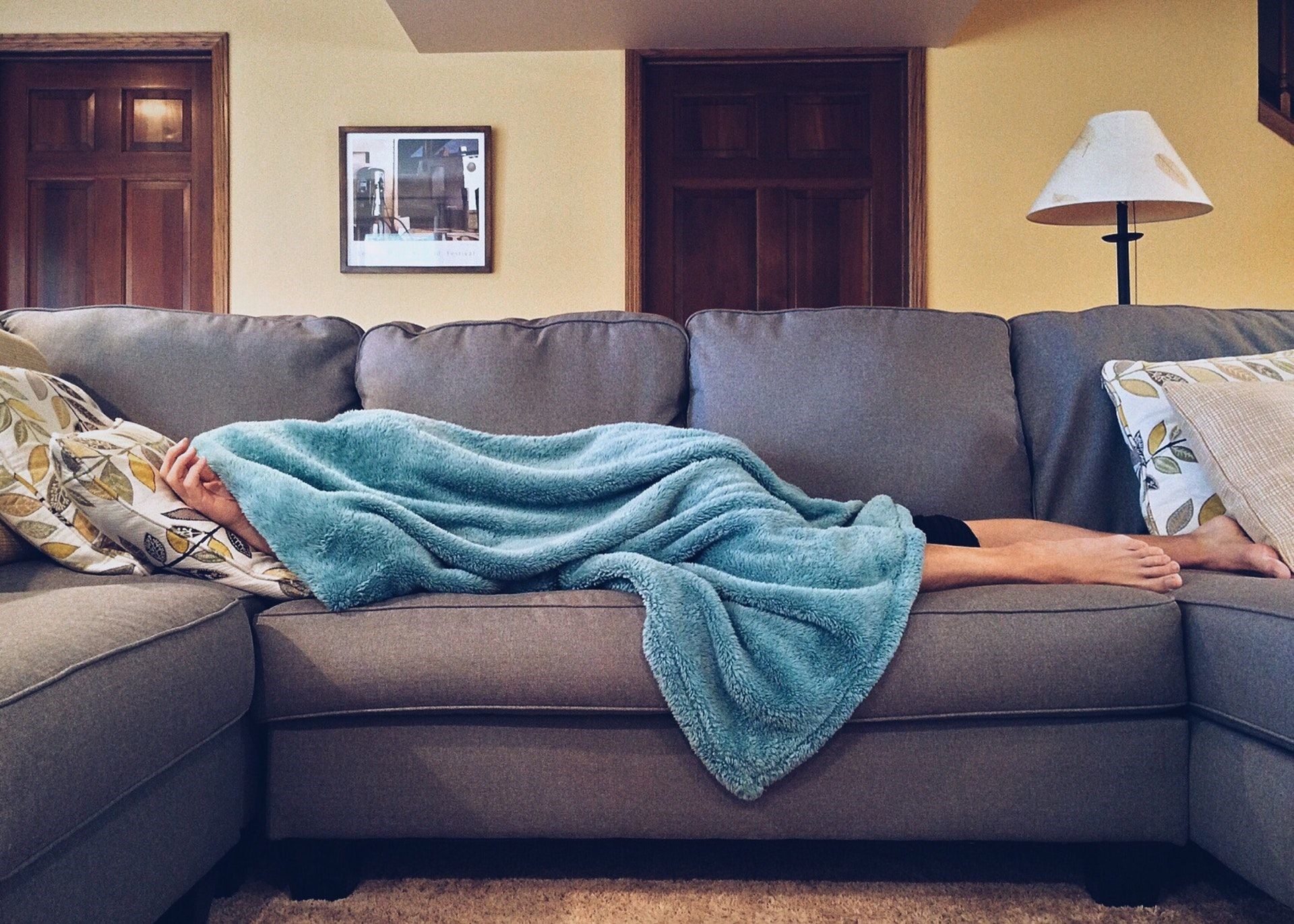
The snoring problem: Why we snore and how to stop
Snoring is one of the most common sleep issues: there are around 15 million snorers in the UK, with 30 million people affected by it on a regular basis (British Snoring). It's most infamous for its ability to disturb the sleep of others, especially people who share the same bed.
The snoring problem can be one of the most contentious issues in a relationship, with 78% of British couples saying they have a partner who snores, according to a survey by Breathe Right. What's more, 35% of suffering partners say that they feel like they're at their wits' end with the problem, and 14% say they are being deprived of sleep as a result.
In this blog post, we're going to have a closer look at why you might develop a snoring problem, as well as some of the ways that you can try to stop. Read on to find out more.
Why do we snore?
Snoring occurs when air can't move freely through the passageways in your mouth, throat, and nose when you sleep, causing the surrounding soft tissues to vibrate and cause that harsh 'snore' sound that we all know and love.
While everyone snores at some point in their lives, for chronic snorers, there is most likely an underlying cause. These can include:
- Being overweight or not getting enough exercise: If you're overweight, you may have more tissue in and around your throat, which can exacerbate snoring. Being out of shape may also mean you have poor muscle tone in that area, which can contribute.
- Allergies and nasal stuffiness: Should you suffer from allergies, you may experience regular nasal and sinus problems, which can make breathing difficult and lead to snoring. Blocked airways from a cold and flu can also cause people to snore.
- Drinking alcohol and taking certain medication: When you've had a drink, alcohol causes your muscles — including your throat — to relax, and your airway can become restricted as a result. This makes snoring more likely. The same can happen when you take certain medication, such as tranquilisers or muscle relaxants.
- Sleeping position: If you're a back sleeper, gravity causes your tongue and soft palate to fall back into your throat. This can narrow the airway and cause snoring.
- Your age: As you get older (usually middle age and beyond), your throat naturally becomes narrower and muscles get weaker. As a result, the airway is more prone to becoming obstructed, causing you to snore.
- Your genes and sex: Sometimes there are causes for snoring that boil down to your genetics. A narrow throat, enlarged adenoids, or a long soft palate or uvula can be natural causes of snoring you can’t do much about. Being a man also makes you much more likely to snore, as men have narrower air passages than women.
Snoring or sleep apnoea?
Before we look at how you can address your snoring, it's important to rule out the more serious health issue of sleep apnoea, which can also be the cause. This condition interrupts your breathing when asleep, to the point where your sleep is disrupted.
If you snore heavily, wake up choking or gasping, and are often tired through the day, you may be suffering from sleep apnoea rather than just a common snoring problem. Take a look at this guide from the NHS for further information and don't hesitate to contact your doctor.
How can I stop snoring?

If you suffer from snoring, it's important to know that there are numerous ways to address the problem and get you and your partner sleeping soundly once again.
There are a lot of remedies out there, but some are more effective than others. Below, we've listed some of the best self-help strategies that you can undertake.
Change your sleeping position
As we've mentioned, sleeping on your back can be a cause of snoring, so if you're a back sleeper, conditioning yourself to switch position can help to alleviate the problem. Side sleeping is the best position for easy breathing, as it keeps your airways open.
You may find it hard to adjust at first, but there is a trick that you can use to train yourself: attaching a tennis ball to the back of a pyjama top. This may sound odd at first, but when you roll over in the night, the discomfort of lying on the ball will prompt you to move back onto your side. Soon, sleeping on your side will become second nature.
If you struggle to get comfy on your side, you may want to consider upgrading your mattress. One of our memory foam mattresses in a medium firmness will give you much more support by adjusting to your body shape and alleviating your pressure points.
Adjust your sleeping environment
There are one or two things you can adjust in your sleeping environment to eliminate common causes of snoring. Allergies are one thing that can clog up your airways, so you should take precautions and invest in hypoallergenic bedding to reduce the number of irritants present.
We stock allergy-friendly products in our duvet, pillow, and mattress protector ranges that can help to protect your current bed and mattress. We also have specialist Silver and Aloe vera mattress ranges that have antibacterial and dust-repellent features to provide a more hygienic night's sleep.
The quality of air in your bedroom can also affect your air passages, especially if you are breathing in dry air that can irritate membranes in your nose and throat. Bringing a humidifier into your sleep space can help to add moisture to the air, as can adding a few houseplants — take a look at this list from Hunker to find out which species are most effective.
Live a healthier lifestyle
We've covered how being overweight, unfit, and drinking alcohol can be root causes of a snoring problem, so trying to live a healthier lifestyle can be one of the most effective solutions to the issue. By eating right, drinking less alcohol, and getting some exercise, you can lose weight and tone your neck muscles to open your airways and reduce the chances of snoring through the night.
What's more, leading a healthy lifestyle can improve your sleep quality on the whole. This is because eating the right foods will mean that you're consuming less sugary and fatty dishes that can negatively impact your rest, as well as cutting down on alcohol, another sleep disruptor. More exercise will also promote sleep by tiring your body out and helping you wind down.
If you’re interested in improving the quality of your sleep with a new bed, mattress or bedding, don’t hesitate to explore our ranges or get in touch. Keep reading this blog and our advice centre for more sleeping tips.







Leave a Reply